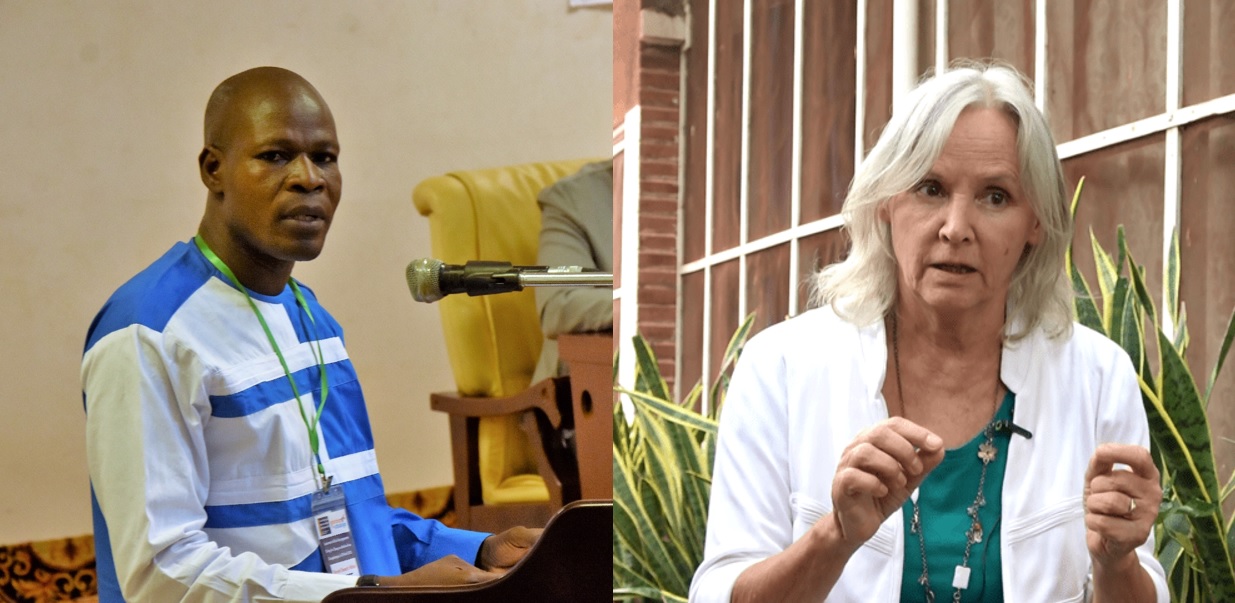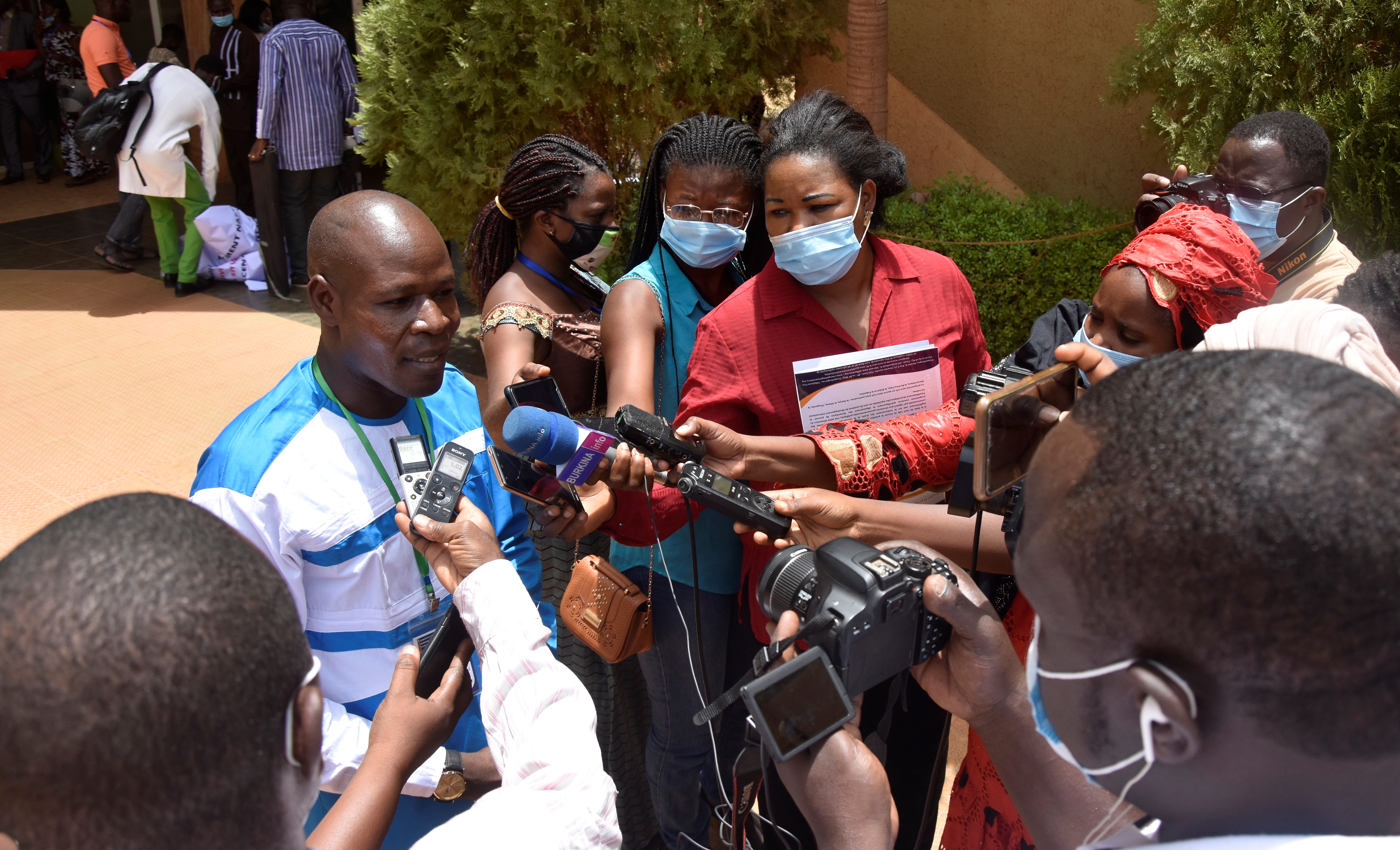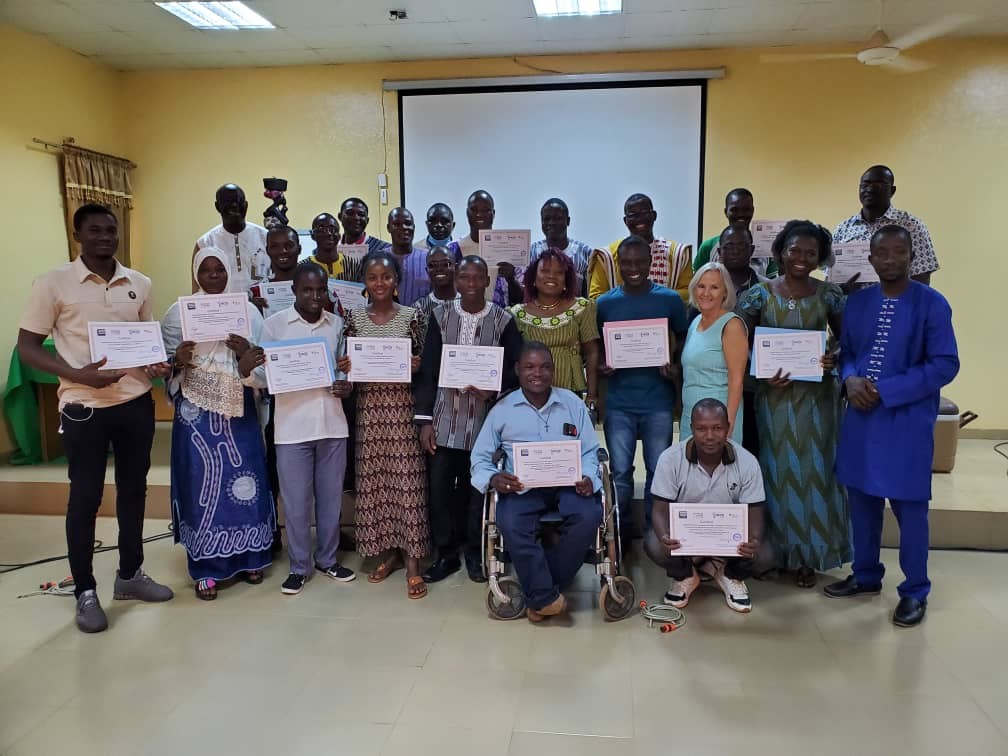“#ShiftThePower is not just about money, it is also about having the will to move together” – Meet the Giving for Change alliance: Association Burkinabè de Fundraising
02 Sep 2021
In this series of interviews, we will be introducing you to the lead partners involved in the Giving for Change programme! The five-year, €24 million programme will be implemented in Brazil, Burkina Faso, Ethiopia, Ghana, Kenya, Mozambique, Palestine and Uganda, and is led by a consortium of four organizations: the Africa Philanthropy Network, Kenya Community Development Foundation, GFCF and Wilde Ganzen. The aim of Giving for Change – part of the Dutch government’s ‘Power of Voices’ programme – is to foster local giving as an expression of voice, civic participation, solidarity and dissent. The programme will build evidence around new thinking, approaches and leadership that support community philanthropy development.
In this interview we speak with Abdoulaye Sawadogo, Executive Director and Lenie Hoegen Dijkhof, Coach/Consultant, at the Association Burkinabè de Fundraising (ABF). ABF works across Burkina Faso, and specializes in building the capacities of community-based civil society organizations to mobilize support and resources for local development initiatives.
GFCF: What does community philanthropy currently look like in Burkina Faso?

Abdoulaye Sawadogo, Executive Director & Lenie Hoegen Dijkhof, Coach/Consultant, at the Association Burkinabè de Fundraising
Abdoulaye: The term “community philanthropy” is new in the context of Burkina Faso, and is largely not developed because of several factors. First, people have a mentality of expecting to be helped – so they tend to wait for external funding. Because people are used to being assisted, they aren’t used to giving. Second, and as reinforced by a recent report from the Africa Philanthropy Network, there are a number of barriers to developing a culture of community philanthropy in Burkina Faso. This includes the current unfavourable legal framework, dependency syndrome and the mistrust of community organizations – people do not find them to be credible and do not want to give their money to these structures. As you can see, we have a lot to do!
Having said this, however, when there is a problem or crisis like a natural disaster or terrorism, people give food and other forms of support to assist those in need to solve problems. People find it natural to support their brothers and sisters. Generally though, people in Burkina Faso are not in the habit of contributing regularly to support community projects and long-term development initiatives.
Lenie: There is an “invisible philanthropy” that we do not often see or talk about in Burkina Faso. As Abdoulaye pointed out, if there is a disaster or an emergency within a family, everyone will contribute because they feel an obligation to support a person who might be needing medical attention. Also, something I have seen in terms of statistics, is that 6% of Burkina’s population is displaced. But more than 72% of these displaced people have since found shelter, because they have been welcomed by families in the regions where they ended up. There is a lot of intra-family giving happening that is not recognized. This form of philanthropy is well developed, though it is one which isn’t regularly considered.
GFCF: What does #ShiftThePower mean to you/your organization?
Abdoulaye: #ShiftThePower simply means making structural changes – changing the mind-sets of communities and making them see that they have their own power, and that they should claim it. At the moment, communities are not aware of the laws and legal tools that protect them, and we see one of our roles at ABF is in sharing and spreading this information. For example, in one community training, we discovered that a community was not aware of a relevant law allowing communities to claim financial support for people with disabilities. Even the Mayor was surprised! It became clear to us that at the grassroots level people are not informed, and local authorities are not doing anything to make this information readily available. Thus, we need to make sure that these laws are clearer and understood, so that communities can use their agency, claim their rights, and demand what is due to them from authorities. We have a lot to do to sensitize ordinary people, but at ABF our role is in making this information accessible.
At the same time, we have to work with authorities, encouraging them to play a bigger role in ensuring that development is actually happening at the grassroots. So, for us, #ShiftThePower is working at two levels: working with both communities and authorities. We are currently planning a forum and inviting local NGOs to come and share success stories from different regions. Local authorities will also attend. We do this to help different actors feel inspired, and innovative examples of what works so these can be replicated elsewhere.
When local communities and local authorities can actually work together in pursuit of the same priorities, then this is when effective development will take place. It is a structural approach to #ShiftThePower.
GFCF: How will the Giving for Change programme help to advance the community philanthropy field or #ShiftThePower in Burkina Faso?
Abdoulaye: ABF has a big role to play in making community structures and associations more transparent and credible, so that they can win the trust of ordinary people – who then, in turn, will hopefully give to these structures. Through the programme, we will also advocate for laws that will make giving for development easier – as I mentioned before, the current framework is not favourable.
However, the state alone should not be responsible for development across the country. It must be a shared responsibility, where individuals are willing to give at the community level. We will leverage on the existing philanthropic efforts where we have seen people helping one another in times of crisis or disruption. Welcoming someone, giving them shelter and other basic needs is a lot when you consider these contributions monthly. This kind of giving is an asset we have in Burkina Faso and it can help us as we try to advance the Giving for Change programme. But #ShiftThePower is not just about money, it is also about having the will to move together. It is ideas that will help us to move forward.
So far, as part of our work with the programme, we have been training certified trainers in local fundraising and local philanthropy development. The programme is entirely based on community-buy in and we see that communities are already getting behind the approach. This is a step in the direction of changing mind-sets, and moving away from dependency on foreign donors.
GFCF: How can the Giving for Change programme help encourage donors / INGOs to really shift power and resources closer to the ground?
Abdoulaye: The priority is making sure that the power lies at the grassroots level. For example, we are developing a fund that will be supported by enterprises, though the resources mobilized will be directed into the hands of communities. We are exploring different forms of corporate social responsibility, and will be encouraging enterprises to give back to their communities. Businesses need to be a part of development too, but – again – the state also has a role to play here. The government should reduce the tax rates of those businesses who are willing to support their communities, and to make it easier for them to give, from an administrative point of view.
INGOs should fund capacity building and the organizational growth of local institutions in communities. They have been supporting them for years, but the results are not visible. We cannot continue to have business as usual. As I said before, we have to make sure that community institutions are credible and reliable. Without INGOs, many local organizations would die – they depend too much on INGO funding. Thus, INGOs need to examine how they have been operating. Moving forward, they need to consider how best to build the capacities of their partners, rather than undermining them. If we continue the way we are, we will still have poor development results for the next 100 years. It is time for INGOs to change the way they fund local organizations: the priority must be building strong local leaders.
GFCF: Did you have any other thoughts or remarks?
Abdoulaye: I’m reminded of the words of Thomas Sankara, former President of Burkina Faso. Everyone here knows his dream: even though he unfortunately didn’t live long! He always said that the most important thing is the community, and that development won’t happen unless communities are involved. If communities invest themselves in the process, then they will be more serious about what happens later. Whoever you are in the community, you are important: you are important for your society and you can contribute to its development.
Interview conducted by: Ese Emerhi, GFCF Global Network Weaver & Tarisai Jangara, GFCF Communications Specialist
Meet the other Giving for Change partners:
Brazil Philanthropy Network for Social Justice
Coordenadoria Ecumênica de Serviço – CESE (Brazil)
Development Expertise Center (Ethiopia)
Global Fund for Community Foundations (South Africa)
Kenya Community Development Foundation
MICAIA Foundation (Mozambique)




